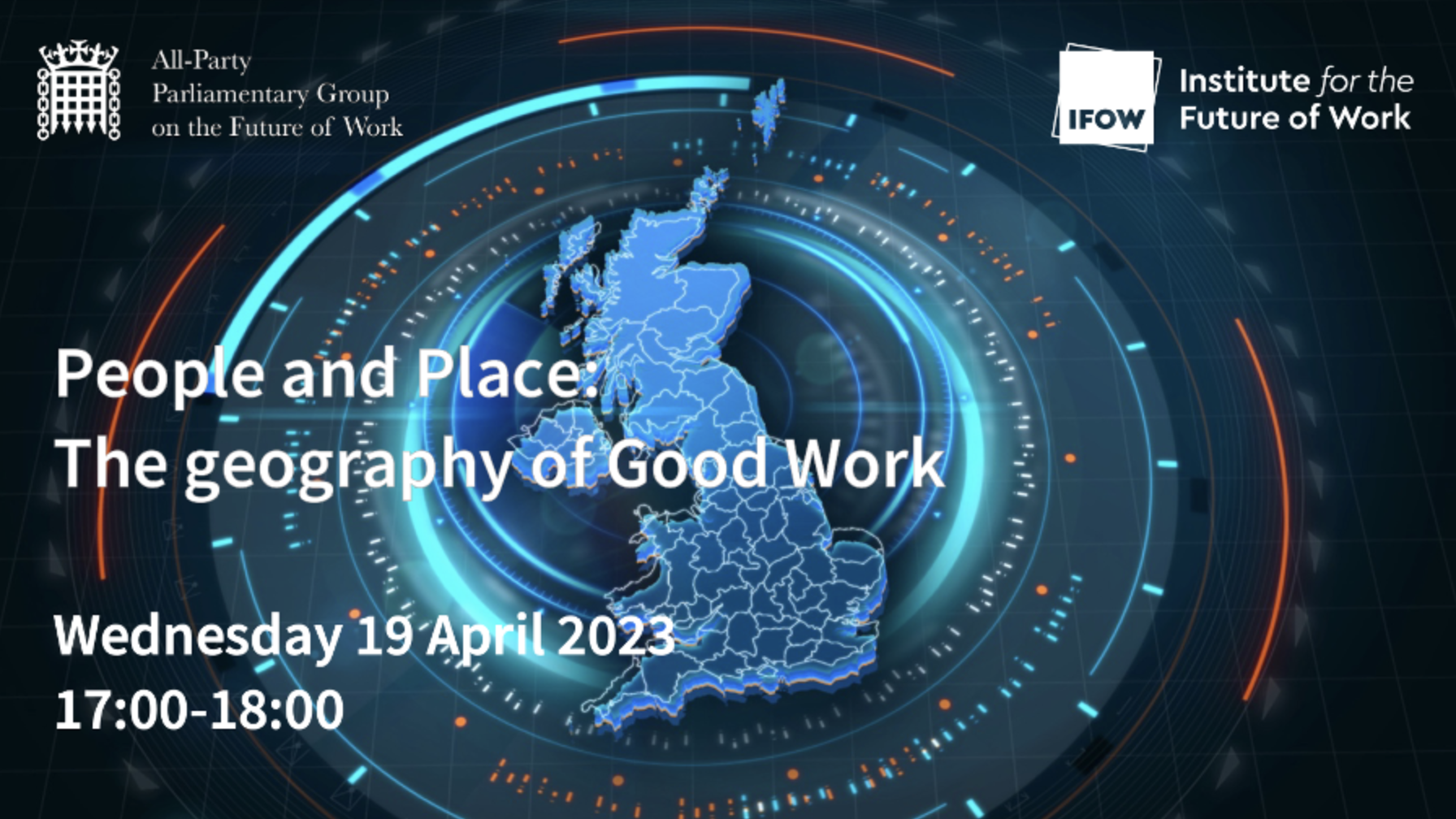‘People and place’ - the geography of good work
On 19th April the APPG on the Future of Work, in collaboration with our Strategic Research Partner the Institute for the Future of Work, met in the House of Lords for the first session of the Future of Work Review being conducted this year by co-chairs Matt Warman MP and Lord Jim Knight.
The focus of this event was how patterns in access to good work vary across geography and demography. We were joined by Minister of State for Employment, Guy Opperman MP, Professor Sir Christopher Pissarides from LSE, Professor Philip McCann – Chair of Regional Economics at Alliance Manchester Business School — and Dr M Winter, Post-doctoral Researcher, Department of Business Administration, TalTech, Estonia and Research Fellow, Institute for the Future of Work, London, UK.
Members from industry and academia heard a rich discussion about the policy levers available to create and sustain good quality jobs and how national and local Future of Work strategies could be developed and implemented.
The Minister opened by outlining what the government was doing to facilitate as many people as possible into work, including a focus on the over 50s with the midlife MOT and those with young families.
Though the UK is enjoying record levels of employment, Professor Sir Christopher Pissarides emphasised how these numbers mask issues with the availability of good work – work that promotes dignity, autonomy, equality; work that has fair pay and conditions; work where people are properly supported to develop their talents and have a sense of community.
Professor Philip McCann highlighted IFOW’s Good Work Time Series as a tool for thinking about economies in a far more holistic way as it helps policymakers understand how the different pieces of the multi-layered jigsaw of suppliers, training providers, industrial estates, SMEs and local labour market demands fit together. He also underlined the comparative weakness of local workplace institutions in the UK, with Chambers of Commerce not functioning to translate skills into workplaces nearly as well as similar structures in Germany, the US or the Netherlands.
Dr M Winter drew attention to The Bristol Project, a new report published by IFOW in collaboration with researchers from the University of Bristol that illustrates how processes of local urban transformation, viewed as regeneration, often overlook work, while drastically and rapidly impacting the lives of workers.
Drawing on his work on frictions in the labour market – for which he was awarded the Nobel prize – Christopher explained how skills is currently the biggest factor that prevents more efficient matching of workers to vacancies, and how apprenticeships – though numerous – are failing to provide high-quality outputs.
The session concluded with discussion about an overall policy direction in favour of a reorientation towards good work as a way of resolving, resolving and making even better outcomes. The Good Work Time Series offers a sharp focus on creating pathways to this good work future as a bridge from response to the cost-of-living crisis to the long-term planning required to tackle deep-seated inequalities across the country. It invites a reset of relations between the national and subnational tiers of government and a fresh, evidence-driven approach to funding priorities and allocation. Reinforcing the need for a new economic paradigm, good work should be a cross-cutting, policy objective, guiding and measuring the success of ‘Levelling Up' and unleashing the potential of people and places.
If you would like to join the group, please do contact us - we’d love to hear from you.

